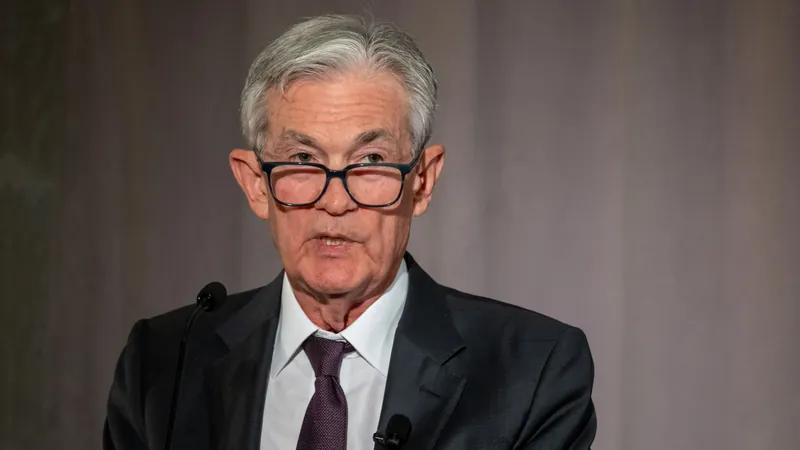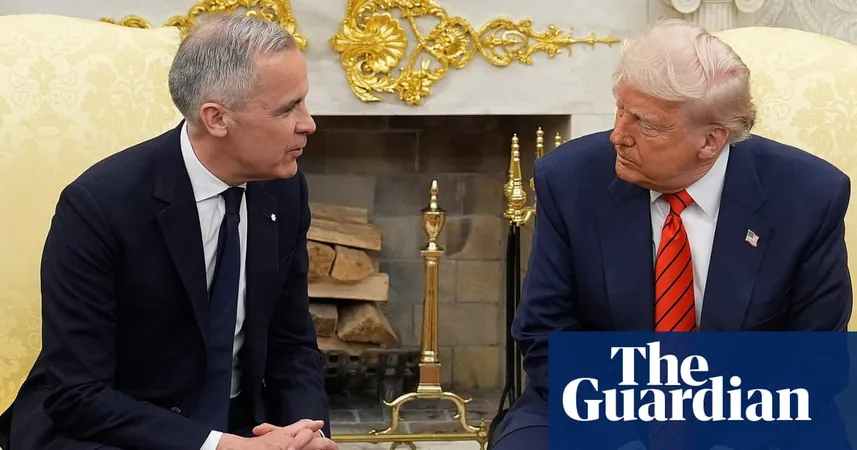
Bitcoin's Sudden Decline: What Caused the Drop on Wednesday Afternoon?
2025-04-16
Author: Sophie
In a surprising turn, Bitcoin's brief surge toward the $86,000 mark took a nosedive during U.S. afternoon trading on Wednesday. This abrupt shift came after Federal Reserve Chairman Jerome Powell issued a stark warning regarding the implications of President Trump's tariff policies.
Powell stated, "The level of the tariff increases announced so far is significantly larger than anticipated. The economic repercussions will likely include higher inflation and slower growth." His remarks echoed concerns of stagflation, akin to the economic struggles of the 1970s when the U.S. faced weak growth amidst soaring inflation.
The Bitcoin price fell roughly 2.5% shortly after Powell's comments, settling at approximately $83,700—down 1.5% over the previous 24 hours. The U.S. stock market also felt the sting, with the Nasdaq plummeting by 3.4% to its session low.
As cryptocurrencies gain traction, Powell acknowledged the pressing need for a robust legal framework for stablecoins, suggesting that banking regulations surrounding crypto assets might be partially eased. This follows the recently cleared bill by the U.S. Senate Banking Committee aimed at regulating stablecoin issuers, signaling a pivotal step toward comprehensive law.
Powell's Hawkish Tone Weighs Heavily on Crypto Market
Quinn Thompson, chief investment officer of hedge fund Lekker Capital, described Powell's stance as extremely hawkish. Thompson noted that Powell dismissed last week's market chaos as "orderly market functioning," despite mounting volatility.
Thompson's analysis indicates that investors should brace for reduced expectations regarding interest rate cuts in forthcoming meetings, which could exert downward pressure on risk assets like cryptocurrencies. He remarked, "It appears a May rate cut is firmly off the table unless the Fed intervenes for troubling reasons, and June isn't guaranteed either. The bullish outlook for crypto, particularly Bitcoin, relies on liquidity and supportive policies—both seem distant at this time, making an optimistic outlook challenging in the immediate future."









 Brasil (PT)
Brasil (PT)
 Canada (EN)
Canada (EN)
 Chile (ES)
Chile (ES)
 Česko (CS)
Česko (CS)
 대한민국 (KO)
대한민국 (KO)
 España (ES)
España (ES)
 France (FR)
France (FR)
 Hong Kong (EN)
Hong Kong (EN)
 Italia (IT)
Italia (IT)
 日本 (JA)
日本 (JA)
 Magyarország (HU)
Magyarország (HU)
 Norge (NO)
Norge (NO)
 Polska (PL)
Polska (PL)
 Schweiz (DE)
Schweiz (DE)
 Singapore (EN)
Singapore (EN)
 Sverige (SV)
Sverige (SV)
 Suomi (FI)
Suomi (FI)
 Türkiye (TR)
Türkiye (TR)
 الإمارات العربية المتحدة (AR)
الإمارات العربية المتحدة (AR)